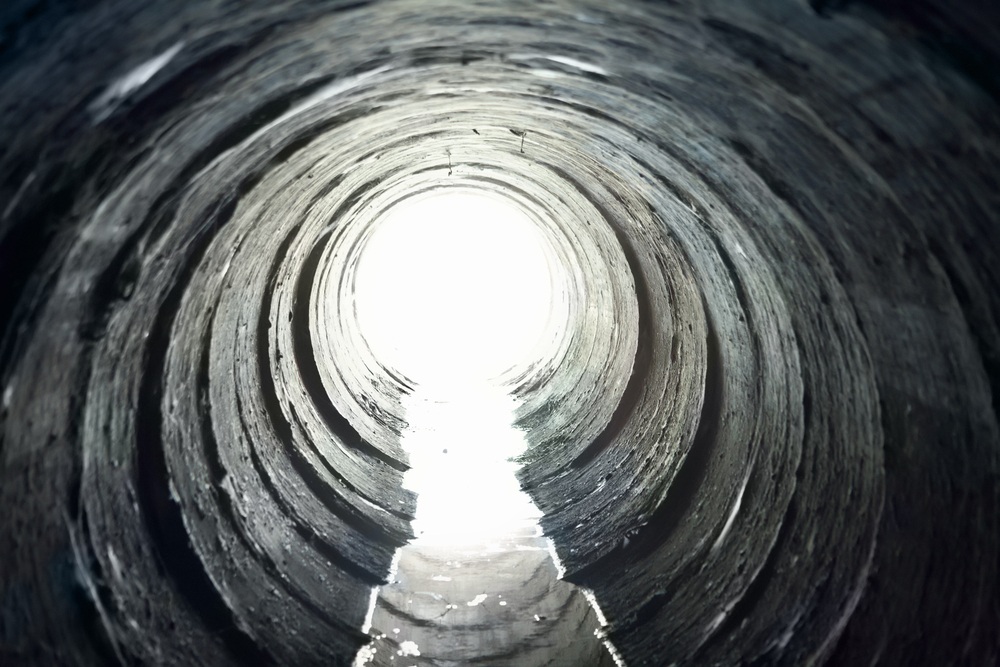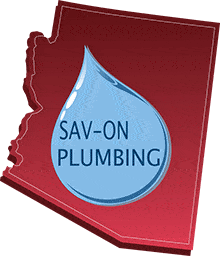
Are you worried your home might be experiencing a slab leak or sewer issue? Here’s what you need to know.
Slab leaks and sewer problems happen. If you are concerned you may be facing one of these issues with your home’s plumbing, you can’t just turn the other cheek and hope everything will be okay. These can be serious issues that need attention. Here’s what you need to know about them:
What Is a Slab Leak?
Many homes in Arizona don’t have basements, so they are constructed on slabs. A slab is a concrete pad poured as the foundation for your home. When the home is on a slab, the pipes are below ground level, and the concrete is poured on top. This means the pipes are embedded in the soil, but they come up through and are bound to the concrete slab.
Over time, the pipes under the slab can break down and decompose, causing them to leak. The biggest problem with a slab leak is the affect it has on the ground under your home’s foundation. The water from the leak compromises the foundation and moves the soil, which can create a situation where the integrity of the house is at risk.
How to Tell If You Have a Slab Leak
One of the first signs of a slab leak is often water on the floor, usually noticeable as wet areas on the concrete, hardwood, carpet, or other flooring. You might also notice a sudden and significant increase in your water bill, a decrease in your water pressure in your sinks and showers, and a constantly running and refilling water heater. Another sign is the smell of mold or mildew, or you might notice it on your floors or near the bottom of the walls.
What Are Common Sewer Problems?
Your sewer is not only a vital part of your home, but it’s also the largest drain in your house. Because of this, it is not uncommon to have issues with the sewer line. Some of the most common causes of sewer line problems are:
- Tree roots growing into your sewer line
- Pipes that are collapsed, broken, or misaligned due to shifting earth
- Blockages from items flushed down toilets that are either too big for the pipe or that don’t disintegrate
- Corrosion of the pipes if they are older or made of materials such as PVC
- A bellied pipe, or a pipe that sinks down into the ground in one area causing an area where waste pools
- Leaks in the joints and seals allowing water and waste to escape into the ground and surrounding area
How to Tell If You Have a Sewer Problem
It’s usually very easy to tell if you have a broken sewer line or other issue. The smell is a dead giveaway. Nothing smells quite like sewer gas. If you smell it outside of your home or in any of your sinks or drains, it’s a sign there’s a problem. Some other signs include:
- Slow drains: This is often due to a blockage, back up, or break in the sewer line. The slow drains most often are noticeable in the kitchen sink, toilets, showers, and bathtubs.
- Clogs: If you find that you have a clog or back up in one area of your home but nowhere else, this could be a sign of a sewer issue, especially if all attempts to clear the line are ineffective.
- Differences in your lawn: if you suddenly have an area of your lawn that is especially green and lush, or one that is soggy and wet, it could indicate a break in the sewer line.
What Should You Do?
Whether you are concerned about a slab leak or think you might have a sewer line issue, the right move is to call a professional plumber. There are plenty of DIY plumbing jobs you can tackle on your own, but these issues are not one of them.
Reach out to our team of experts at Sav-On Plumbing right away if you think you have a slab leak or sewer problem. We can walk you through the steps to turn off the water until we arrive to repair the damage and get your home’s plumbing back to normal.
